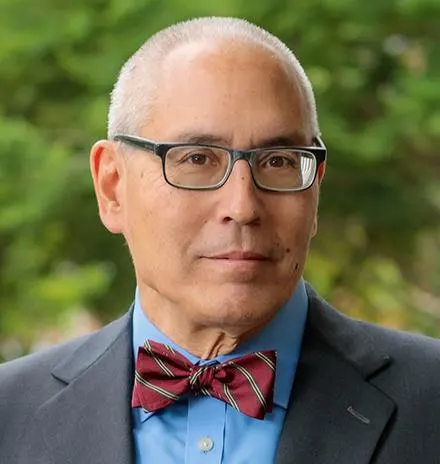It's a question often debated, but seldom answered authoritatively: Do companies have a social responsibility to protect the environment beyond legal requirements?
Specifically, may companies do so within the scope of their fiduciary responsibilities to their shareholders? Can they do so on a sustainable basis? Should firms sacrifice profits for positive environmental impacts? And do firms at least sometimes behave this way?
Striving to find authoritative insights into those questions, three Harvard faculty members hosted a colloquium on the subject in December 2003, the results of which have been published in a new book: Environmental Protection and the Social Responsibility of Firms: Perspectives from Law, Economics, and Business.
The coauthors are Bruce L. Hay, Harvard Law School; Robert N. Stavins, John F. Kennedy School of Government; and Richard H. K. Vietor, Harvard Business School. We asked Vietor to discuss some of the findings in this e-mail interview.
Manda Salls: What inspired you and your colleagues to write this book?
Richard Vietor: Rob had some financial support for looking at CSR, and we got more help from the Committee on the Environment and from Harvard Business School. So we designed this project to ask: May they, can they, should they, and do they?
We commissioned three papers, one by law school professor Einer Elhauge, to examine "may they?" He concluded that firms could indeed go beyond legal requirements and that it was consistent with their fiduciary responsibilities. A second approach, by economist Paul Portney, considered whether firms can do CSR without getting hurt competitively, and whether or not they should. He concluded that they could, under limited circumstances, but he saw no real evidence that they should. The third essay, by Harvard Business School professor Forest Reinhardt, considered whether firms should and do engage extensively in CSR. This essay, in other words, considered empirical evidence. Reinhardt found that relatively few firms do engage in real CSR, and those that do can do so only under unusual market conditions.
Q: Some businesses assert that by "doing good" they are improving the bottom line through positive public relations. Does the research support this assertion? Are there concrete financial benefits to participating in environmental CSR?
A: There is an increasing literature suggesting, or even trying to prove, that business voluntarism (Corporate Social Responsibility)—spending money on the environment—adds to profitability IN MOST CASES! We decided to look at the literature of business, of economics, and of law to see if there really was support for this. We hired three distinguished academics, one from each field, to examine these issues and write a careful, sophisticated essay arguing their conclusions on the issue.
There are companies that benefit from environmental activism. DuPont, when it voluntarily stopped making chlorofluorocarbons; Patagonia, when it makes very expensive, natural garments; Ben and Jerry's, and so on. But the evidence is very mixed as to how often CSR pays off, or serves the company strategically. Most of the authors did not think that usually happened.
Q: Can you tell us more about the difference between Corporate Social Responsibility (CSR) and Corporate Social Performance (CSP)?
A: Corporate Social Performance is a term used to describe "strategic" behavior by a firm. When a firm engages in environmental or other social performance that is beyond what the law requires, and does so because it thinks the behavior will help shareholder returns, that is designated CSP. Of course, if it serves the shareholder, then it is perfectly reasonable behavior that management should engage in. There is, in other words, nothing special about it.
Q: The book brought up many interesting ethical dilemmas. For example, improvements such as worker protection might be costly to implement, but could save the company money down the line. How should companies think about profit-sacrifice?
A: One of the key issues raised in the book, and in the colloquium itself, is the question of how much a firm should do beyond what is required. It could be environmental mitigation, providing for worker healthcare, compensation, or other actions. The question is whether the firm should pursue extra goals that are not required by the shareholders and do not directly serve the interests of the shareholders.
Q: Have you seen examples of companies that are, in your opinion, getting environmental CSR right? Overall, what opportunities do you see for corporate environmentalism?
A: My own view is that many companies, by obeying the law and perhaps doing a bit extra, get it right. If the law says the effluent should be 100 or less, a firm that cleans up to 80 may benefit by preventing criticism from environmental NGOs (non-governmental organizations) and by hedging against a toughening of regulation in the near future. However, a firm that spent $50 million more to get to 50, even though the law required 100, may not be serving its shareholders. That is, who is to say that if the $50 million were paid out in dividends, the shareholders would not, themselves, use the money charitably—better serving their own charitable interests?
Q: What other research are you working on?
My more recent research is on a book about how countries compete. It takes the perspective that I've taught in the Advanced Management Program for the past ten years to examine how governments use development strategies to grow and be competitive. These governments range from China and India to Saudi Arabia, Japan, and Mexico. The work finds that governmental institutions, broadly defined, are crucial for implementing successful economic development.

